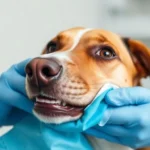
Introduction
Caring for a puppy is one of the most rewarding experiences a pet owner can have. However, it also comes with significant responsibilities, especially regarding their health. Maintaining a healthy puppy is crucial for their growth, development, and overall well-being. According to veterinary studies, a significant percentage of puppies experience health issues during their first year, with common problems including parvovirus, kennel cough, and nutritional deficiencies.
In this guide, we will explore various aspects of puppy health care, focusing on how to keep a puppy healthy. You will learn about puppy development stages, nutritional needs, veterinary care, exercise, grooming, and more to ensure your furry friend grows into a happy and healthy adult dog.
Understanding Puppy Health
Key Stages of Puppy Development
Puppies go through several key developmental stages, each with unique health considerations:
-
Neonatal (0-2 weeks): During this stage, puppies are highly dependent on their mothers for nutrition and warmth. Their eyes and ears are closed, and they cannot regulate their body temperature.
-
Transitional (2-4 weeks): Puppies begin to open their eyes and ears. They start to explore their environment, and their socialization with littermates is crucial for behavioral development.
-
Socialization (4-12 weeks): This is a critical period for socialization. Puppies should be exposed to different environments, people, and other animals to develop into well-adjusted adults.
-
Juvenile (3-6 months): Puppies begin to develop their personalities. They require more mental and physical stimulation during this active phase.
-
Adolescence (6-18 months): This stage is often marked by rebellious behavior as puppies reach maturity. Consistent training and socialization remain essential.
Common Health Issues in Puppies
Understanding common health issues can help you take proactive measures to protect your puppy:
-
Parvovirus: This highly contagious virus can be deadly, especially in young puppies. Routine vaccinations are essential to prevent it.
-
Distemper: Another viral disease that can affect a puppy’s respiratory, gastrointestinal, and nervous systems. Vaccination is key to prevention.
-
Kennel Cough: A highly infectious respiratory disease, kennel cough can spread quickly in places with many dogs. Vaccination and good hygiene practices can help prevent outbreaks.
-
Worm Infestations: Puppies are susceptible to various worms, including roundworms and hookworms. Regular deworming is necessary to maintain a healthy digestive system.
Nutrition for a Healthy Puppy
Importance of a Balanced Diet
A balanced diet is the foundation of a healthy puppy. Puppies require a specific ratio of proteins, fats, carbohydrates, vitamins, and minerals to support their rapid growth and energy levels. High-quality puppy food provides essential nutrients that promote healthy bones, muscles, and immune systems.
Choosing the Right Puppy Food
Selecting the right puppy food can be overwhelming, with various options available:
-
Dry Food (Kibble): Convenient and helps clean teeth as puppies chew. Look for brands with high protein content and quality ingredients.
-
Wet Food: More palatable and hydrating, but can be more expensive. It can be mixed with dry food for added flavor.
-
Homemade Diets: While it can be healthy, homemade diets require careful planning to ensure they are nutritionally balanced. Consult a veterinarian before switching to a homemade diet.
When choosing puppy food, always read the labels. Look for:
- AAFCO (Association of American Feed Control Officials) statement indicating the food is formulated for puppy growth.
- High-quality protein sources at the top of the ingredient list.
- Minimal fillers and artificial additives.
Feeding Schedule and Portion Control
Establishing a feeding schedule is crucial for your puppy’s health. Generally, puppies should be fed three to four times a day until they are about six months old. After that, you can transition to twice daily meals.
Portion control is essential because overfeeding can lead to obesity and its associated health risks. Consult your veterinarian to determine the appropriate portion sizes based on your puppy’s breed, age, and activity level.
Regular Veterinary Care
Importance of Veterinary Check-ups
Regular veterinary visits are vital to your puppy’s health. Puppies should receive a series of vaccinations starting at six to eight weeks of age, with boosters given at regular intervals. These vaccinations help protect against severe diseases like parvovirus and distemper.
In addition to vaccinations, routine health check-ups allow veterinarians to monitor your puppy’s growth and address any potential health concerns early on.
Preventative Care
Preventative care is essential to keep your puppy healthy:
-
Flea and Tick Prevention: Puppies are susceptible to infestations that can lead to more severe health issues. Discuss preventative treatments with your veterinarian.
-
Heartworm Prevention: Heartworm disease is preventable with monthly medication. A simple blood test can determine if your puppy is at risk.
Spaying/Neutering
Spaying or neutering your puppy has several benefits, including:
- Reducing the risk of certain cancers
- Preventing unwanted litters
- Decreasing behavioral issues associated with mating instincts
The optimal timing for the procedure varies based on breed and size, so consult your veterinarian for guidance.
Exercise and Mental Stimulation
Physical Exercise Needs
Exercise is crucial for a puppy’s physical health. The exercise needs vary by breed; however, most puppies require at least 30 minutes to 2 hours of activity daily.
Engaging in various activities helps burn off excess energy, which can prevent behavioral issues. Here are some fun activities to consider:
- Daily walks
- Fetch games
- Obstacle courses
- Swimming
Mental Stimulation Techniques
Mental stimulation is as important as physical exercise. Puppies need to engage their minds to develop properly and avoid boredom. Consider incorporating these techniques:
-
Puzzle Toys: Toys that require problem-solving can keep your puppy entertained and mentally active.
-
Training Sessions: Regular training reinforces good behavior and strengthens your bond.
-
Socialization: Arrange playdates with other dogs and expose your puppy to different environments and people to encourage confidence and adaptability.
Grooming and Hygiene
Importance of Regular Grooming
Regular grooming is essential for maintaining your puppy’s skin and coat health. It helps prevent matting, reduces shedding, and allows for early detection of skin issues or parasites.
Bathing and Brushing
Bathing your puppy should not be excessive; typically, every 4-6 weeks is sufficient unless your puppy gets particularly dirty. Use dog-specific shampoos to avoid skin irritation.
Brushing your puppy’s coat depends on their breed and coat type. Long-haired breeds may require daily brushing, while short-haired breeds can be brushed weekly. Use appropriate tools to make the process enjoyable for your puppy.
Dental Care
Dental hygiene is vital for your puppy’s overall health. Poor dental care can lead to periodontal disease and affect other organs. Start brushing your puppy’s teeth early using dog-specific toothpaste and toothbrushes. Consider dental chews and toys approved by veterinarians to help maintain dental hygiene.
Building a Healthy Environment
Safe Living Space
Creating a safe living space is essential for your puppy’s health. Puppy-proof your home by removing hazards such as toxic plants, choking hazards, and small objects that can be swallowed.
Designate a comfortable sleeping area equipped with a cozy bed where your puppy can rest and feel secure.
Socialization and Interaction
Early socialization is crucial for developing a well-adjusted puppy. Expose your puppy to various experiences, including different types of people, other animals, and new environments.
Consider enrolling in puppy classes that focus on socialization and basic training. This structured interaction can help your puppy build confidence and improve their behavior in different situations.
Recognizing Signs of Illness
Common Symptoms to Watch For
Being vigilant about your puppy’s health is essential. Common symptoms that may indicate illness include:
-
Changes in Appetite: A sudden decrease or increase in appetite can signal health issues.
-
Behavioral Changes: Lethargy, increased aggression, or excessive whining may indicate discomfort or illness.
-
Signs of Pain or Discomfort: Whining, limping, or reluctance to move can indicate your puppy is in pain.
When to Consult a Veterinarian
If you notice any concerning symptoms, consult your veterinarian promptly. Additionally, be aware of signs that may indicate an emergency. These include:
- Difficulty breathing
- Severe vomiting or diarrhea
- Seizures
- Uncontrolled bleeding
Being proactive and monitoring your puppy’s health can lead to early detection and treatment of potential issues.
Conclusion
Maintaining a healthy puppy requires dedication and knowledge. By understanding puppy development, providing a balanced diet, ensuring regular veterinary care, and focusing on exercise, grooming, and a safe environment, you can take significant steps towards how to keep a puppy healthy.
Taking proactive measures in your puppy’s care not only enhances their quality of life but also strengthens the bond you share. Remember, a healthy puppy is a happy puppy!









